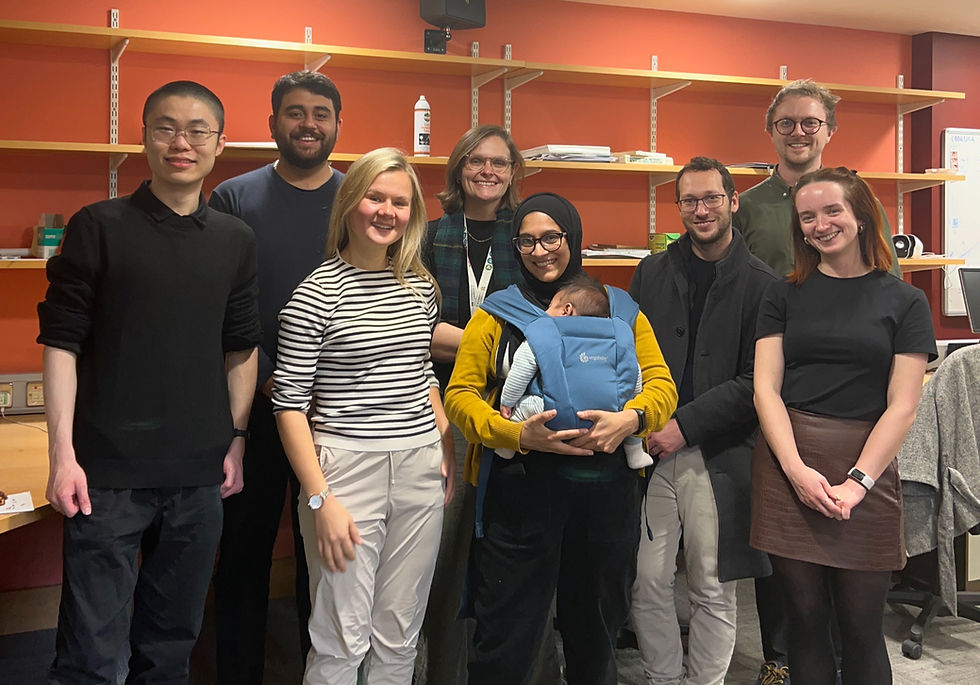New lab paper in PloS Computational Biology!
- Oct 14, 2025
- 1 min read
The PaL lab has published a new paper led by Dr Brónagh McCoy (now at King’s College London; see her webpage here: https://www.kcl.ac.uk/people/bronagh-mccoy ), titled “The relationship between anxious traits and learning about changes in stochasticity and volatility” published in PLOS Computational Biology.
Brónagh set out to tease apart two often-conflated sources of uncertainty, noise (stochasticity) and volatility (changes in contingency), using a clever orthogonal design, and importantly followed this with a pre-registered replication (Experiment 2, N = 160) to bolster robustness.
The study shows that while most people adjust their learning (win-stay / lose-shift behaviour and modelled learning-rates) when contingency shifts (volatility) or outcome noise increases, those higher in anxious traits respond differently: under specific conditions (especially low volatility + high noise) they show elevated negative learning-rates (i.e., more switching after losses) and more exploitative choice behaviour.
The open-science component is key: all data and scripts are publicly available on OSF.
Brónagh’s work beautifully demonstrates that anxiety isn’t just about “bad learning” but about how people parse different kinds of uncertainty — an insight with direct relevance to our interests in uncertainty, prediction error and mental-health.
Congratulations Brónagh — this one was a labour of love!





Comments